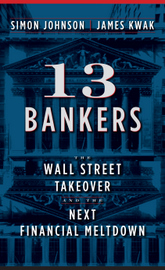
Best of TomDispatch: Chalmers Johnson, Dismantling the Empire
Chalmers Johnson (RIP)
TomDispatch.com, 7 August 2011
EXTRACT
Three Good Reasons to Liquidate Our Empire and Ten Steps to Take to Do So
1. We Can No Longer Afford Our Postwar Expansionism
2. We Are Going to Lose the War in Afghanistan and It Will Help Bankrupt Us
3. We Need to End the Secret Shame of Our Empire of Bases
. . . . . . . .

10 Steps Toward Liquidating the Empire (Abridged)
Dismantling the American empire would, of course, involve many steps. Here are ten key places to begin:
1. We need to put a halt to the serious environmental damage done by our bases planet-wide. We also need to stop writing SOFAs that exempt us from any responsibility for cleaning up after ourselves.
2. Liquidating the empire will end the burden of carrying our empire of bases and so of the “opportunity costs” that go with them — the things we might otherwise do with our talents and resources but can't or won't.
3. As we already know (but often forget), imperialism breeds the use of torture. Dismantling the empire would potentially mean a real end to the modern American record of using torture abroad.
4. We need to cut the ever-lengthening train of camp followers, dependents, civilian employees of the Department of Defense, and hucksters — along with their expensive medical facilities, housing requirements, swimming pools, clubs, golf courses, and so forth — that follow our military enclaves around the world.
5. We need to discredit the myth promoted by the military-industrial complex that our military establishment is valuable to us in terms of jobs, scientific research, and defense. These alleged advantages have long been discredited by serious economic research. Ending empire would make this happen.
6. As a self-respecting democratic nation, we need to stop being the world's largest exporter of arms and munitions and quit educating Third World militaries in the techniques of torture, military coups, and service as proxies for our imperialism.
7. Given the growing constraints on the federal budget, we should abolish the Reserve Officers' Training Corps and other long-standing programs that promote militarism in our schools.
8. We need to restore discipline and accountability in our armed forces by radically scaling back our reliance on civilian contractors, private military companies, and agents working for the military outside the chain of command and the Uniform Code of Military Justice. Ending empire would make this possible.
9. We need to reduce, not increase, the size of our standing army and deal much more effectively with the wounds our soldiers receive and combat stress they undergo.
10. To repeat the main message of this essay, we must give up our inappropriate reliance on military force as the chief means of attempting to achieve foreign policy objectives.
Read full article with many links…
The Impact Today and Tomorrow of Chalmers Johnson
Steve Clemons
The Washington Note, 21 November 2010
Phi Beta Iota: The second article is a stunning review of the intellectual life of Chalmers Johnson, who was among many things a net assessments analyst for Allen Dulles. He pioneered the study of “State Capitalism” and considered the US to be a greatly under-performing economy for its failure to move away from military unilateralism and toward sustainable development.








